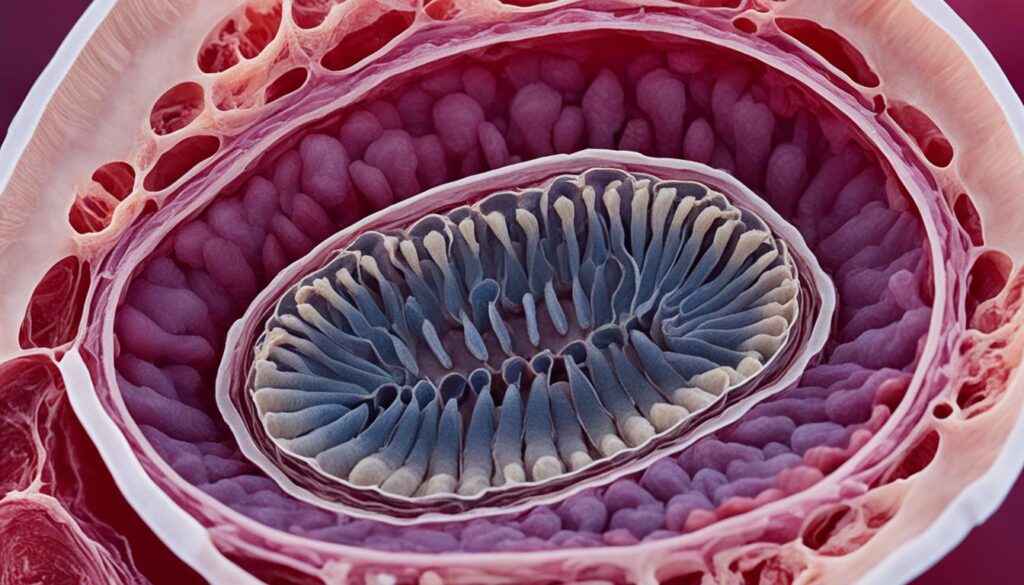Optimal Breeding Age for German Shepherds
Did you know that German Shepherds reach sexual maturity around 2 years of age?
German Shepherds are one of the most popular dog breeds in the world, known for their loyalty, intelligence, and beauty. When it comes to breeding these incredible dogs, it is crucial to consider their optimal breeding age. Breeding too early or too late can have significant implications for the health and well-being of both the parent dogs and their offspring.
Health screening tests and genetic testing for conditions like hip and elbow dysplasia should be done after the second year. While female German Shepherds can start their heat cycles as early as the first year, it is recommended to breed them no earlier than 2 years old to ensure their physical and emotional maturity. On the other hand, breeding beyond the age of 8 is not advisable as the quality of the dog’s eggs deteriorates and the chances of birth defects increase.
When it comes to male German Shepherds, they should not be used for stud until they have reached sexual maturity and have demonstrated conformation and temperament standards.
By considering the optimal breeding age for German Shepherds and taking into account their individual health and genetic factors, we can ensure the well-being of both the parent dogs and their future generations.
Factors to Consider for Breeding German Shepherds
When it comes to breeding German Shepherds, there are several important factors to consider for successful outcomes. Understanding the dog’s breeding cycle, the mating season, and maintaining reproductive health are crucial aspects of responsible breeding.
The Breeding Cycle:
Female German Shepherds start their heat cycles in their first year. However, this does not mean they are ready to rear puppies. Breeding them too early can negatively impact their parenting ability and overall health. It is recommended to wait until the females are at least 2 years old before considering breeding them. Some experienced breeders even suggest waiting until they are 3 years old to ensure their physical and emotional maturity is fully developed.
The Mating Season:
Understanding the mating season of female German Shepherds is crucial for effective breeding. Female GSDs are receptive to male dogs during their estrus phase, which typically lasts around 9 days. It is important to identify the specific timing of this phase to maximize the chances of successful mating.
Reproductive Health:
Maintaining the reproductive health of both male and female German Shepherds is paramount for successful breeding. Regular veterinary check-ups, including specific reproductive screenings, can help identify any potential health issues that may affect their ability to conceive or carry healthy puppies.

In conclusion, guidelines for breeding German Shepherds include considering the dog’s breeding cycle, understanding the mating season, and focusing on reproductive health. By taking these factors into account and ensuring the dogs are physically and emotionally ready for breeding, breeders can increase the likelihood of producing healthy and well-adjusted German Shepherd puppies.
Genetic Conditions to Be Aware of in German Shepherds
When breeding German Shepherds, it is crucial to be aware of the genetic conditions these dogs are prone to. By understanding and screening for these conditions, we can ensure the health and well-being of both the breeding dogs and their future puppies.
German Shepherds commonly suffer from a range of genetic conditions, including:
- Hip and elbow dysplasia
- Arthritis
- Degenerative joint disease
- Degenerative myelopathy
- Von Willebrand disease
- Exocrine pancreatic insufficiency
- Irritable bowel disease
To mitigate the risk of these conditions, genetic screening tests are available for some of them. It is highly recommended to screen the potential breeding dogs for these genetic conditions to ensure the production of healthy and thriving puppies.
Note that inbreeding can significantly increase the chances of these genetic conditions manifesting in the offspring. Therefore, genetic testing becomes even more critical in German Shepherd breeding to prevent the transmission of these conditions to future generations.
Maintaining the Health of German Shepherds through Genetic Testing
Genetic testing is a powerful tool that allows breeders to identify the presence of specific genes that contribute to these genetic conditions. By identifying carriers and affected dogs, breeders can make informed decisions to select healthier breeding pairs.
During the breeding process, it is essential to prioritize the well-being of the German Shepherds and ensure that their genetic health is thoroughly assessed. Through genetic testing, we can minimize the risk of passing on these conditions and promote the production of healthy and resilient German Shepherd puppies.
| Genetic Condition | Prevalence | Screening Availability |
|---|---|---|
| Hip and elbow dysplasia | High | Genetic screening tests available |
| Arthritis | Common | Genetic screening tests available |
| Degenerative joint disease | Common | Genetic screening tests available |
| Degenerative myelopathy | Medium | Genetic screening tests available |
| Von Willebrand disease | Low | Genetic screening tests available |
| Exocrine pancreatic insufficiency | Low | Genetic screening tests available |
| Irritable bowel disease | Medium | Genetic screening tests available |
Through responsible breeding practices and the utilization of genetic testing, we can ensure the continued health and vitality of the German Shepherd breed. By prioritizing the screening and selection of breeding dogs for genetic conditions, we can contribute to a future generation of German Shepherd puppies that are less prone to these inherited diseases.
Conclusion
Successful German Shepherd breeding requires careful consideration and planning. To ensure the health and well-being of your dogs and the quality of their lineage, here are some essential tips:
1. Breed at the optimal age: It is recommended to breed female German Shepherds when they are at least 2 years old. This allows them to reach their physical and emotional maturity, ensuring healthy parenting skills.
2. Perform health screening tests: Before breeding, it is crucial to conduct health screening tests and genetic testing for potential genetic conditions. This helps identify any health issues that could be passed on to the offspring and allows you to make informed breeding decisions.
3. Be aware of the mating season and receptive period: Understanding the mating season and the receptive period of female German Shepherds is essential for successful breeding. This knowledge enables proper timing and increases the chances of successful mating.
By following these guidelines and taking the necessary precautions, you can promote the health and well-being of your German Shepherds and produce high-quality offspring. Responsible breeding practices contribute to the overall betterment of the breed and ensure the continuation of remarkable traits that German Shepherds are known for.
FAQ
At what age should I breed my German Shepherd?
It is recommended to breed female German Shepherds no earlier than 2 years old to ensure they have reached their physical and emotional maturity. Some breeders even suggest waiting until they are 3 years old.
When is the mating season for German Shepherds?
Female German Shepherds are receptive to male dogs during their estrus phase, which typically lasts around 9 days. This is when they are most likely to conceive.
What factors should I consider when breeding German Shepherds?
Factors to consider include the dog’s breeding cycle, the age and health of the dog, and the mating season. It is important to ensure both the male and female dogs are in good reproductive health and have undergone genetic testing to screen for any potential genetic conditions.
What are some genetic conditions to be aware of in German Shepherds?
German Shepherds are prone to genetic conditions such as hip and elbow dysplasia, arthritis, degenerative joint disease, degenerative myelopathy, Von Willebrand disease, exocrine pancreatic insufficiency, and irritable bowel disease. It is important to screen potential mates for these conditions to ensure the health of the puppies.
How can I ensure successful breeding of my German Shepherds?
To have successful breeding, it is important to wait until the female German Shepherd is at least 2 years old, perform health screening tests and genetic testing, be aware of the mating season, and ensure both the male and female dogs are in good reproductive health. Responsible breeding practices can help optimize the health and lineage of your German Shepherds.







